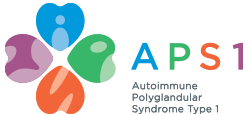Important COVID-19 News
The APS Type 1 Foundation’s mission is to raise awareness and support research into APS Type 1. While we do not give medical advice, we work hard to provide our community with reliable and up-to-date resources. The COVID-19 pandemic continues to present challenges for everyone, including, in particular, those with underlying health conditions and their families.
In coordination with the Foundation’s medical advisory committee and others, we share the following important and urgent information. We encourage you to review this information so you can take necessary steps to try to avoid contracting COVID-19 in the first place and so you can be prepared if you or a loved one with APS Type 1 does, in fact, contract COVID-19.
Recent Studies
Recent studies suggest people with APS Type 1 are at high risk for getting very sick with COVID-19 because they have autoantibodies against a family of cytokines called the Type 1 interferons (Meager et al. 2006) and these cytokines play an important role in protecting people from COVID-19 by restricting viral growth (Bastard et al. 2020).
In line with this, a 32 year old woman with APS Type 1 who was infected with COVID-19 had a more severe course than would be expected based on her age and sex (Beccuti et al. 2020), and two other APS Type 1 patients from the NIH cohort of patients also developed severe disease (Bastard et al. 2020).
Updated Statement from NIH on Omicron Subvariants, Pre-Exposure Prophylaxis and Therapeutic Management of Nonhospitalized Patients with COVID-19
On November10, 2022, the NIH’s COVID-19 Treatment Guidelines Panel issued a statement on omicron subvariant, pre-exposure prophylaxis and therapeutic management of nonhospitalized patients with COVID-19.
- The Panel continues to recommend the following anti-SARS-CoV-2 therapies as preferred treatments for COVID-19. These drugs are listed in order of preference:
- Ritonavir-boosted nirmatrelvir (Paxlovid)
- Remdesivir
- Molnupiravir should be used ONLY when neither of the preferred therapies are available, feasible to use, or clinically appropriate.
- Bebtelovimab is no longer authorized for use.
Paxlovid is authorized for the treatment of mild-to-moderate COVID-19 in adults and pediatric patients (12 years of age and older weighing at least 40 kg) with positive results of direct SARS-CoV-2 viral testing, and who are at high risk for progression to severe COVID-19, including hospitalization or death.
FDA Announces Bebtelovimab is Not Currently Authorized
On November 30, 2022, the U.S. Food and Drug Administration announced Bebtelovimab is not currently authorized for emergency use in the U.S. because it is not expected to neutralize Omicron subvariants BQ.1 and BQ.1.1., according to data included in the Health Care Provider Fact Sheet. Read the full statement here.
Help Finding Covid Therapeutics
As it is tough to know where some of the Covid medications are available, click here for a useful resource for finding locations that have Evusheld, Paxlovid and Molnupirivir. You can filter by state and drug to refine the information. Share this information with your local physicians, should this be needed.
NEW! FDA Announces Evusheld is No Longer Authorized in the U.S.
On January 26, 2023, the U.S. Food and Drug Administration announced that Evusheld is not currently authorized for emergency use in the U.S. because Evusheld is not expected to provide protection against developing COVID-19 if exposed to today’s most common variants.
Follow Public Health Guidance
Please ensure that you wear a mask in public, exercise social distancing, and wash your hands frequently. These are the best available methods to decrease the chances of contracting COVID-19.
Early Aggressive Treatment Options
If you have been exposed to someone with a confirmed or suspected case of COVID-19 and you subsequently test positive for SARS-CoV-2 (the virus that causes COVID-19), you may benefit from early aggressive treatment with medications that can help clear the virus such as:
- Paxlovid
- Interferon-beta-1a, and/or
- Anti-SARS-CoV-2-targeted monoclonal antibodies such as bamlanivimab and casirivimab/imdevimab, and/or
- Anti-viral medication, such as Remdesivir.
These medications may be useful in the early phases of COVID-19 when the symptoms are relatively mild to prevent uncontrolled viral growth, which may lead to subsequent severe manifestations. Supplies may be limited, so if you test positive, tell your doctor immediately and contact Thomas Dimaggio at the NIH via email at thomas.dimaggio@nih.gov. The NIH team has directly or indirectly managed successfully several APS Type 1 patients with COVID-19 and will help your local physicians with your treatment plan, including consideration for early hospitalization if symptoms persist or worsen through the days.
Getting Access to Medications
If your physician team agrees that any of the above medications are indicated, your physician will need to contact the relevant companies to access the medications.
Learn more about monoclonal antibodies by contacting the Combat COVID Monoclonal Antibodies Call Center at 1-877-332-6585 or click here.
Set forth below is contact information for compassionate use:
- Interferon-beta-a: contract Biogen at patientcenter@biogen.com
- Bamlanivimab: contract Lilly at 1-855-LillyC19 (1-855-545-5921)
- Casirivimab/imdevimab: contact Regeneron at compassionateuserequests@regeneron.com
- Remdesivir: contact Gilead at CompassionateAccess@gilead.com
Your physician would need to provide the companies with information about your symptoms, laboratory findings, oxygen status, and confirm the diagnosis of APS Type 1. Your physician will provide their phone number in that initial email so the company can reach out to them. Within the hour, the company will call back and within 2-3 hours they make a determination of giving the drug or not.
Criteria for compassionate use include:
- High risk for severe COVID-19 (APS Type 1 means high risk for severe COVID-19); and
- NOT requiring oxygen (If patient requires high-flow oxygen or intubation these treatments may worsen the disease). Learn more about oxygen requirements here.
Adrenal Insufficiency Guidance
For patients with adrenal insufficiency, Dr. Lionakis recommends that you do not stress dose if you are not sick, even if you might have had an exposure. If you do become sick, follow your usual sick-day rules and stress-dose proportionate to the severity of the illness.
A large randomized study from the UK demonstrated a benefit of dexamethasone for inpatients with COVID-19 and significant respiratory dysfunction, because of its immunosuppression activity. It is important to note, that in APS Type 1 patients with COVID-19 at the later phase of the infection, when patients require hospitalization due to low oxygen blood levels, corticosteroid therapy is a critical component of the patient management based on the NIH experience with COVID-19-infected APS Type 1 infected patients.
Therefore, for an APS Type 1 patient with COVID-19 infection and respiratory distress, dexamethasone may be used whether the patient has adrenal insufficiency or not – the presence of adrenal insufficiency and the usual treatment regimen should not influence the decision to use dexamethasone.
The NIH team can help guide local physicians about the timing of corticosteroid treatment onset, the dosing, and the duration of such treatment. Contact Thomas Dimaggio at the NIH via email at thomas.dimaggio@nih.gov or Dr. Mihalis Lionakis at lionakism@niaid.nih.gov.
Looking Forward
As a foundation, we will continue to do our best to provide you with reliable and up-to-date information. We urge you to continue to be vigilant to avoid contracting COVID-19 and to act quickly in coordination with your local physicians and the NIH team in the event you do contract COVID-19.


